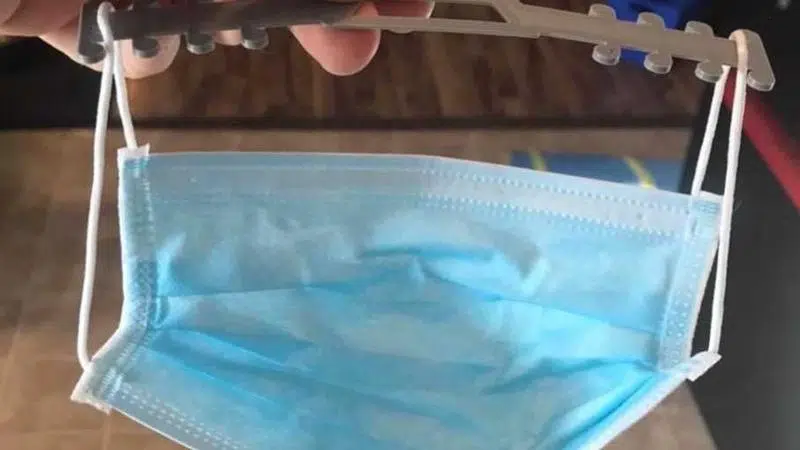
Local business makes mask comfort device with proceeds to help animal rescue groups
As a result of the COVID-19 pandemic, mobile disc jockey companies have taken a large financial scratch, losing a lot of scheduled bookings. The owners of Enspired Entertainment are doing their best, however, to turn a negative into a positive.
Jay Anthony and Colton Cartier are busy making extensions for masks to remove elastic pressure on a wearer’s ears and cinch the device tighter to the face.
“The entertainment industry is at a complete halt and a person gets to make two choices. You can sit around and do nothing and hope for the best or you can be part of the solution,” Anthony said.
 The extensions come in three sizes: small, medium and large. (Facebook/Enspired Entertainment)
The extensions come in three sizes: small, medium and large. (Facebook/Enspired Entertainment)


